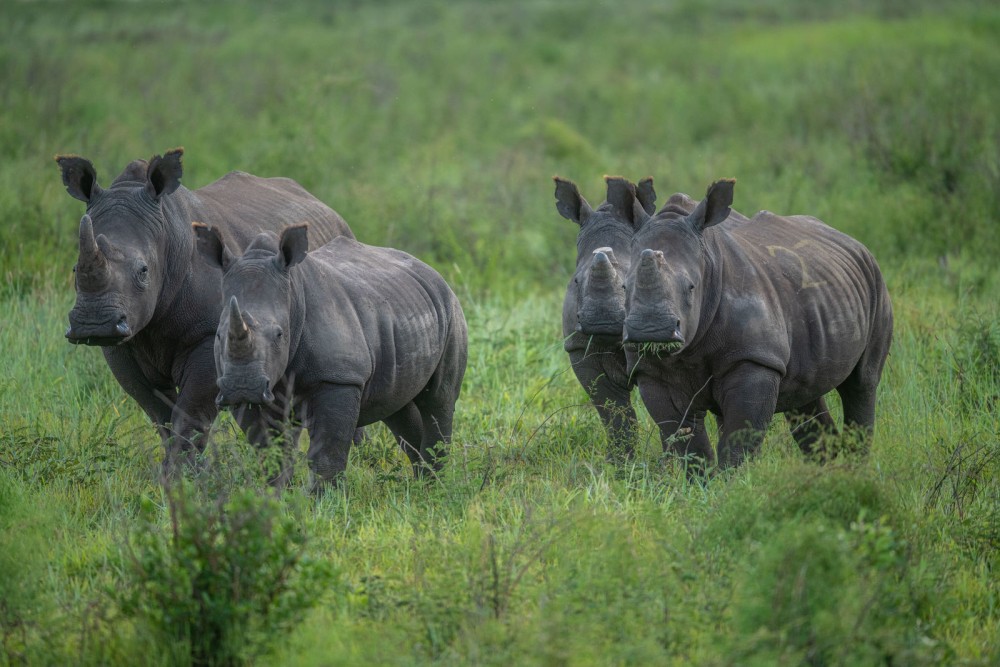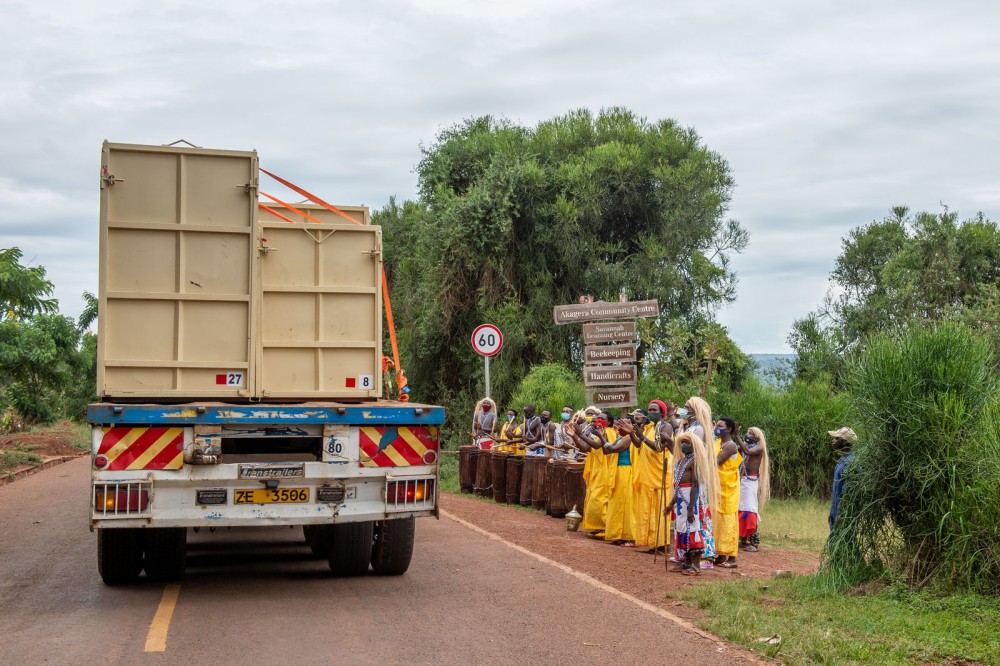The Story
On 27th November 2021, in the largest single rhino translocation ever to take place, 30 southern white rhino were introduced into Akagera National Park in Rwanda, sourced from andBeyond Phinda Private Game Reserve in South Africa.
There are two types of African rhino – white and black rhino. Of the two subspecies of white rhino, the northern white rhino (Ceratotherium simum cottoni) is functionally extinct with only two individuals alive (2023).
The introduction of southern white rhino (Ceratotherium simum simum) to Akagera came at a critical juncture, as the relentless demand for rhino horn continues to exert pressure on populations throughout Africa. Classified as Near Threatened, this initiative has helped to extend white rhino range and create a secure new breeding stronghold
Rhino in Rwanda

Akagera National Park, at 1,112 km2, is the largest protected wetland in Central Africa and the only protected savannah environment in Rwanda. Historically home to a diversity of large African mammals, many were hunted to local extinction over recent decades. Since 2010, African Parks has partnered with the Rwanda Development Board (RDB) to form the Akagera Management Company (AMC), which manages Akagera with a vision of restocking the park with species that have become locally extinct and securing their long-term protection. Together, we have transformed the park into one of the most coveted wildlife destinations and a sustainable revenue source for the region’s communities.
The introduction of white rhino follows the reintroduction of 18 eastern black rhinos to Akagera in 2017 which was funded by the Howard G. Buffet Foundation and saw the return of the species to Rwanda after a 10-year absence. 2019 saw a further five eastern black rhinos introduced from European zoos. Today, Akagera serves as a globally important sanctuary for black and now white rhinos, securing a future for these vulnerable species.
Moving 30 Rhino

Akagera National Park staff built on their years of research and previous experience with the successful reintroduction of eastern black rhinos in 2017 and 2019 respectively.
Sourced from the Munyawana Conservancy in andBeyond Phinda Game Reserve in South Africa, the rhinos – 19 females and 11 males – made a 3,400 km journey which saw them driven from Phinda in crates, then flown to Rwanda on a Boeing 747 and then once again driven to Akagera National Park by truck. This 40-hour journey was a massive logistical undertaking and the first of its kind, taking over three years to organise and one of the longest translocations ever done.
Over the next few weeks the rhinos were monitored daily by a dedicated team and a specialist veterinarian who oversaw their acclimation to the area before being released into the park.
To ensure that this new population of white rhino flourishes, each rhino has been fitted with a transmitter to enable constant monitoring by dedicated tracking teams; a canine anti-poaching unit and helicopter surveillance are also in place to provide further support for their long-term protection. This expertise in rhino tracking and monitoring ensures the best possible outcome for rhino in Rwanda.
The largest-ever rhino translocation
Partners
This historic translocation was carried out through a collaboration between the Rwanda Development Board (RDB), African Parks, Akagera Management Company, and andBeyond, with funding provided by the Howard G. Buffett Foundation.
Your Support Goes a Long Way
At African Parks we are working everyday to protect Africa's last wild landscapes. By donating to us, you are making a difference and are giving hope to people and wildlife across the continent.
Donate